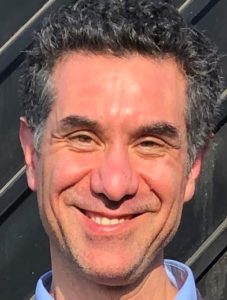This week’s Torah from T’ruah is sponsored by Allison Davis.
Commentary on Parshat Ki-Tavo (Deuteronomy 26:1 – 29:8)
The villagers of Sholem Aleichem’s Anatevka have a talent for comedic curses. When told that the Jews of a neighboring town have been forced from their homes by the czar, or perhaps a plague, someone shouts: “May the czar have his very own plague.” When informed of the latest edict from the authorities someone cries: “May the authorities grow like onions, their heads in the ground.” When a Communist romantic declares that “money is the world’s curse,” Tevye the Milkman retorts: “May God smite me with it, and may I never recover!”
Yet in the midst of all the sardonic humor lies a serious question. Fed up with all the pithy protests, the young Communist asks: “What good will your cursing do?” Interesting question. What good does cursing do? What purpose does it serve? What does it say about the person making the curse and its intended target?
This week’s Torah portion, Ki Tavo, provides a list of curses so harsh, so graphic and so frightening that many communities recite them in a whisper. Even we modern Jews, who don’t believe in “the evil eye,” cringe at reading these verses aloud. Of course, we reject superstition. But why tempt fate?
Sign up to receive Torah from T’ruah in your inbox each week.
Think about the expression: “I don’t wish ill on anyone.” It’s a perfect example of affirmation by negation. Yes, in fact, we do wish ill on any number of people. What we really mean when we say “I don’t wish ill on anyone” is that we want our anger to be affirmed even when we ought to control it.
If wishing someone ill is perfectly harmless, why do we criticize each other for doing it? If someone we love says of someone whose angered them: “I hope he/she drops dead,” we tell them “you don’t really mean that.” Warning someone against rash statements is basically warning them to “be careful what you wish for.” Ours is a religion that teaches that words matter, that even wishes should be uttered with care.
If your existence is anything like mine, you are spending more and more time telling people who agree with you on almost every issue that they cannot hurl f-bombs on Facebook at our socio-political opponents or call our detractors Nazis. If your life is anything like mine, then the response you often get to such admonishments is that the other side “deserves it,” that “they started it,” that “we’re weaklings not to respond in kind.” If your life is anything like mine, then you reply that when we stoop to this level, when we curse without considering the consequences, we lose our integrity as religious progressives. No amount of hate, lies, and name-calling on their part justifies or excuses malicious language on ours.
Find more commentaries on Parshat Ki Tavo
We cannot allow the worst of times to bring out the worst in us. God’s failed intervention with Cain conveys that, while frustration is no sin, the failure to control it is. There is a world of difference between being unsuccessful and unethical. There’s no shame in failing to reach our social justice objectives. What would be shameful is to rationalize abandoning our standards of acceptable argument even though the causes we believe in and leaders we respect are under attack. When we allow perpetrators of fanaticism, fear and falsehood to determine the tone and tenor of discourse we seal our defeat.
 Cursing won’t do any good. So, as we enter the Yomim Noraim, The Days of Awe, let us remember to look upon the world and one another not merely from a perspective of who and what we like or don’t like. Rather, when we behold the world in awe, through a lens of “radical amazement” as Rabbi Abraham Joshua Heschel would have us do, we are required like Balaam to restrain our intention for cursing and turn instead to offering blessings, even for those who don’t seem deserving of them. Now more than ever, let us listen to the verse of Emma Lazarus telling us: “You shall say to the bigot, ‘My brother,’ and to the creature of darkness, ‘My friend.’ And thy heart shall spend itself in fountains of love upon the ignorant, the coarse and the abject.”
Cursing won’t do any good. So, as we enter the Yomim Noraim, The Days of Awe, let us remember to look upon the world and one another not merely from a perspective of who and what we like or don’t like. Rather, when we behold the world in awe, through a lens of “radical amazement” as Rabbi Abraham Joshua Heschel would have us do, we are required like Balaam to restrain our intention for cursing and turn instead to offering blessings, even for those who don’t seem deserving of them. Now more than ever, let us listen to the verse of Emma Lazarus telling us: “You shall say to the bigot, ‘My brother,’ and to the creature of darkness, ‘My friend.’ And thy heart shall spend itself in fountains of love upon the ignorant, the coarse and the abject.”
David Wirtschafter is the rabbi of Temple Adath Israel in Lexington, KY. Confronting violence in classic Jewish texts and the modern world is the focus of his work in progress, The Torah They Never Taught You, Bad Stories from The Good Book. Along with T’ruah’s Rachel Khan-Troster, he was part of the 2019 American Jewish World Service Global Justice Fellows tour of Guatemala. In addition to the refugee crisis he has been actively engaged in efforts to address gun violence, protect reproductive rights, and confront poverty. This past summer he attended a Breaking The Silence tour of Hebron. He writes rhyming stories for children and tries to play mandolin.

